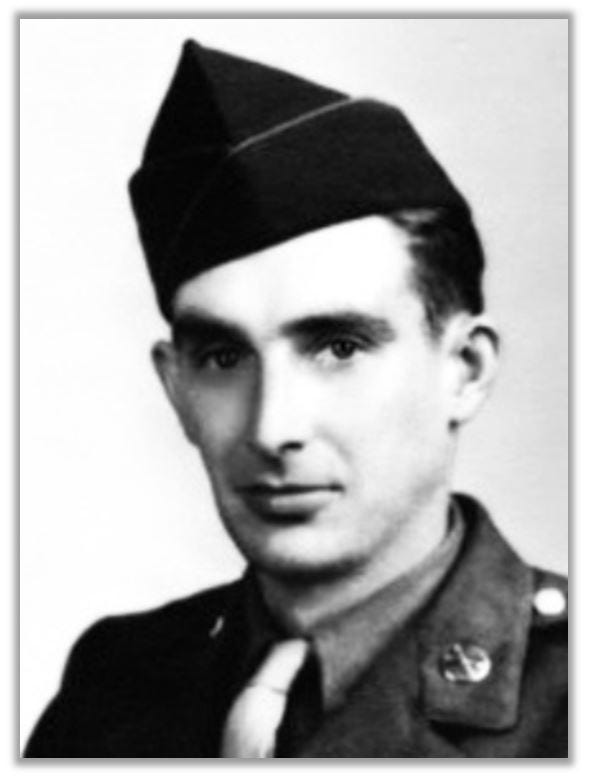Medal of Honor Monday: Forrest E. Peden
Forrest “Frosty” Peden “was a valiant soldier whose deeds seem to have drifted into that obscurity,” a U.S. Army website observes.
During this week in 1945, a soldier engages in an action that would earn him the Medal of Honor. Technician Fifth Grade Forrest “Frosty” Peden “was a valiant soldier whose deeds seem to have drifted into that obscurity,” a U.S. Army website observes.
How sad. Many lives were saved thanks to Peden’s selfless heroism.
On February 3, Peden was a forward artillery observer serving near Biesheim, France. He was advancing with about 45 men when the group came under attack.
They’d been ambushed—and they were badly outnumbered.
Artillery, mortar, machinegun, and small-arms fire were raining down on our soldiers. They tried to seek cover in a ditch, but the enemy was already there. Instead, our men found themselves engaged in hand-to-hand combat.
Perhaps unsurprisingly, two men were soon wounded. Peden could have focused on himself and saving his own life, but he didn’t. He went to the assistance of those two wounded men, rendering first aid, even as heavy fire rained down around him.
Nevertheless, Peden soon realized that even more was needed. Radio communications were inoperative. Someone needed to get help. Peden would be that man.
His trip to the battalion command post was perilous—artillery, mortar, and machinegun fire rained down on him as he ran the half-mile to his destination. By the time he arrived, he had multiple bullet holes in his jacket.
But he’d made it. And he secured two light tanks to help him.
He mounted one tank, fully exposed, to guide it back to the battle site. “Through a murderous concentration of fire the tank lumbered onward,” Peden’s citation describes, “bullets and shell fragments ricocheting from its steel armor within inches of the completely exposed rider, until it reached the ditch. As it was about to go into action it was turned into a flaming pyre by a direct hit which killed Technician Peden.”
The tank was so brightly lit that it helped other reinforcements to find the ambushed Americans.
“Peden's actions were responsible for thwarting a German ambush,” one historian concludes, “enabling the 7th infantry to successfully carry out its mission to capture Biesheim—a small thing, perhaps, in the bigger picture of the war, but more importantly, his actions saved the lives of many of his comrades.”
Unfortunately, the Peden family suffered multiple losses in those months. Peden had twin brothers: Just a few months earlier, one was killed while the other was wounded. Peden also left behind a small daughter, Marcia, who would have to grow up without her dad.
“I remember the dogwood trees [at the train depot],” Marcia told a reporter many decades later. “He turned around and waved. That was the last time I saw him.”
Yet another nearly forgotten sacrifice that deserves to be remembered.
Sources can always be found on my website, here.



How poignant that she remembered the dogwoods on that day she last saw her father. A sweet and gentle reminder each spring when they bloom
Thank you again, Tara!
What a hero he was!
We must never forget those who gave there lives for our nation!